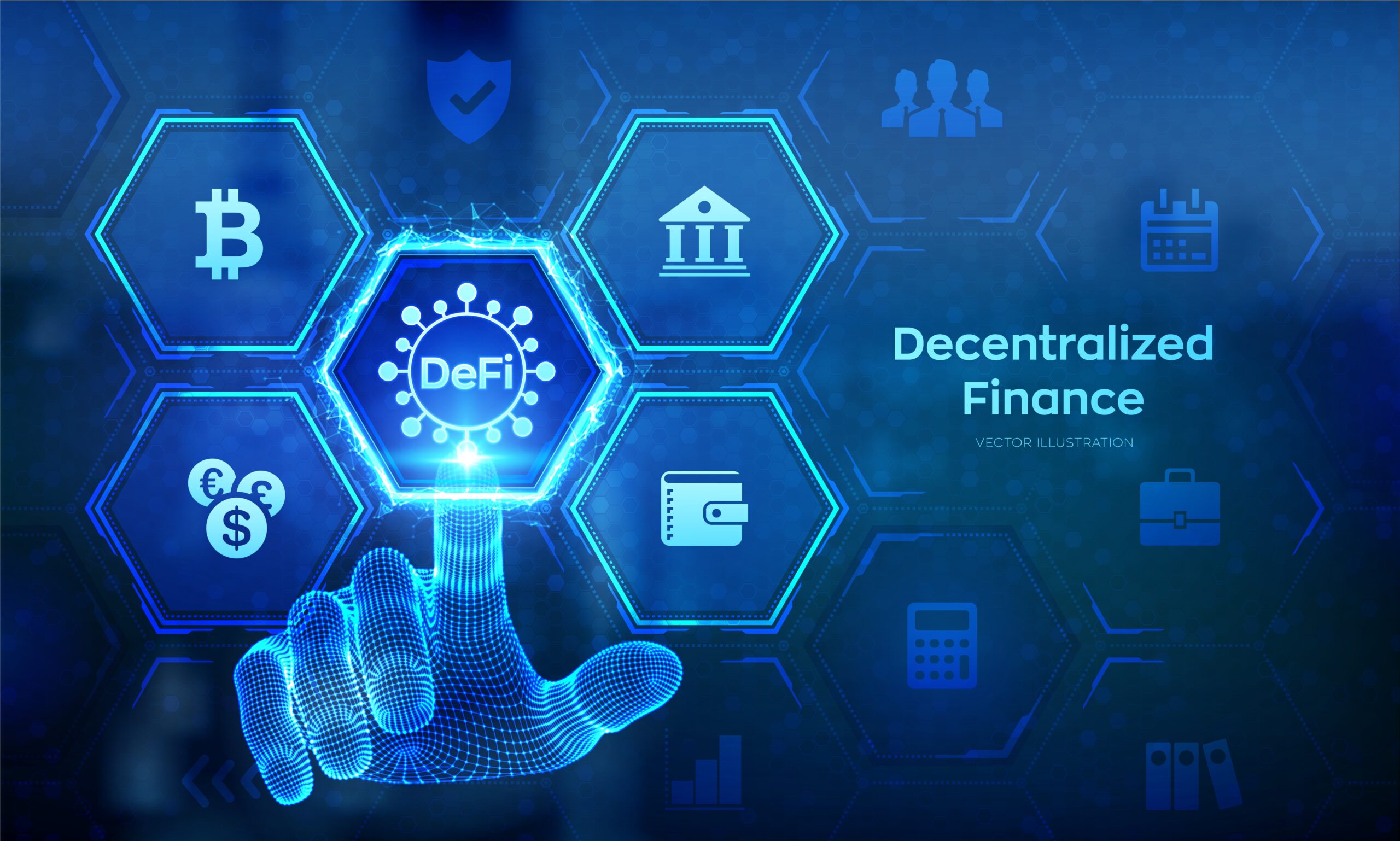How Crypto Loans Work
- 1 What is a crypto loan?
- 2 Defi Crypto Loans
- 2.1 Collateralization
- 2.2 Smart contracts
- 2.3 Loan terms
- 3 Crypto Loan Elements
- 3.1 Borrowers
- 3.2 Lenders
- 3.3 Crypto loan platforms
- 4 What are the DeFi crypto loan mechanisms?
- 4.1 Application
- 4.2 Loan-to-value ratio
- 4.3 Loan terms
- 4.4 Collateral locking
- 4.5 Disbursement
- 4.6 Repayment
- 5 Pros and Cons of Crypto Loans
- 6 Should you take out a crypto loan?
Most people perceive the financial industry as stodgy and traditional, hardly a space where mavericks would emerge. However, that perception has been rapidly evolving after the introduction of blockchain technology. That foundational development gave rise to the first cryptocurrency, Bitcoin, in 2009.
Mainstream adoption of cryptocurrencies soon emerged as a revolutionary force, challenging traditional notions of money and banking.
An intriguing development within this space is the concept of crypto loans. You may have considered acquiring digital assets as they gained widespread acceptance. If you have, the idea of using them as loan collateral may have already occurred to you. In either case, crypto loans are reshaping the lending industry.
This article aims to explain the complexities of crypto loans. We will explore what they are, how they work, and the potential implications they hold for the future of finance.
What is a crypto loan?
A crypto loan is a financial arrangement to borrow fiat currency or stablecoins against cryptocurrencies. You can get one of two crypto loan types: DeFi and CeFi.
Decentralized finance (DeFi) loans use blockchain technology to streamline lending. It includes smart contracts that ensure you fulfill the terms of the loan requirements. Neither you nor your lender controls the crypto assets, but the smart contracts do.
Suppose you default or miss a payment. The smart contract will automatically impose the penalties specified in the code. Unlike traditional loans, a DeFi Bitcoin loan doesn’t require credit checks or paperwork.
On the other hand, centralized finance (CeFi) loans do not involve a smart contract. The lender is often a centralized financial institution that controls your collateral until you pay off the loan. CeFi crypto loans may have lower interest rates than DeFi. However, you must go through the same process as a non-crypto loan, so it may take longer to get one. Suppose you have a poor credit rating. You might not get one at all.
Defi Crypto Loans

Suppose you need money fast and don’t mind paying higher interest rates. You should apply for a DeFi crypto loan. Below are the main elements involved in such loans.
Collateralization
The foundation of crypto loans, like traditional loans, is the collateral. You deposit some digital assets, like Bitcoin and Ethereum, as collateral. The value of the collateral is typically more than the loan amount, providing a safety buffer for lenders in case of market volatility.
Smart contracts
A smart contract is a computer program on a blockchain that automatically executes actions under specific conditions. A blockchain is a secure, transparent, distributed record-keeping system without a central authority. Some call it a decentralized digital ledger.
These contracts are self-executing, meaning they don’t need you or anyone else to make things happen. In the context of a crypto loan, you can write the loan agreement terms directly into the code. The smart contract executes the appropriate action whenever the contracting parties meet predetermined conditions.
For example, once you send the collateral to the smart contract’s address, it will hold it in escrow. That triggers the disbursement of the money to your digital wallet.
Smart contracts automate the lending process, ensuring the execution of the terms when it meets specific conditions. They enable transparency and eliminate the need for intermediaries, reducing the risk of fraud and delays.
Loan terms
Crypto loan terms depend on the lending platform and the cryptocurrency used as collateral. You can get short-term or long-term loans, and interest rates may be fixed or variable. Some platforms offer flexible terms, allowing you to customize your loan agreements based on your needs.
Crypto Loan Elements
Borrowers
Suppose you have digital assets and need money for various reasons but don’t want to sell them outright. You can get a crypto loan instead.
Lenders
Lenders in the crypto loan ecosystem can be individuals or institutions looking to earn interest on their fiat currency by providing it as a loan. These lenders assess the risk associated with each borrower and determine the loan terms accordingly. Some platforms allow lenders to choose specific cryptocurrencies they are willing to accept as collateral.
Crypto loan platforms
Cryptocurrency lending platforms are like digital banks. You can borrow against your deposited crypto assets and lend out crypto to earn interest in crypto rewards. These platforms became famous in 2020 and have grown to billions in value.
Several platforms facilitate the borrowing and lending of cryptocurrencies, acting as intermediaries between borrowers and lenders. They use smart contracts to streamline and automate the lending process and provide a user-friendly interface for participants.
What are the DeFi crypto loan mechanisms?
Crypto loan platforms often operate online and provide a step-by-step guide to getting your money. However, you should still know the mechanisms that go into the process.
Application
You can start the process by registering on your chosen platform and applying for a loan. Unlike traditional lenders, crypto lenders don’t care too much about your ability to pay it back. You can get approval quickly based mainly on the value of your collateral.
Loan-to-value ratio
Lenders subscribe to a specific loan-to-value (LTV) ratio when accepting cryptocurrency as collateral for a loan. They will calculate the ratio by dividing the loan amount by the collateral value. For example, suppose you borrow $300 against your Bitcoin, valued at $1,000. In that case, your LTV is 30 percent. The LTV is a tool to manage the risk for lenders.
You might think a higher LTV ratio, say 90 percent, is better for you, but that is not always true. The value of crypto assets tends to be volatile, so a high LTV is riskier. The lender might require a margin call if the deal falls below a certain threshold. That means they might demand you to deposit additional assets.
The loan terms may also trigger a liquidation, allowing the lender to sell the assets to cover the loan. In most cases, the crypto loan LTV ratio should not exceed 80 percent.
Loan terms
When you apply for a loan, you agree on the loan terms with the lenders. These include the amount, duration, and interest rate. The times vary widely across lending platforms, so it is critical to do research.
Collateral locking
After agreeing to the terms, you lock up the crypto assets as collateral through an intelligent contract. Depending on your agreement with the lender, the smart contract will keep it in escrow until you meet the conditions for its release. Typically, that means repaying the loan in full.
Disbursement
When the smart contract triggers the disbursement, you get your money from a DeFi crypto loan. It is usually in fiat currency or stablecoins and goes directly to your digital wallet. You can use the money for anything you want.
Repayment
You set your repayment schedule as part of your loan terms, including the interest. The intelligent contract monitors your payments and releases the collateral once you fully pay the loan. Suppose you are late or default on your expenses. The smart contract will impose the pre-agreed penalties for these events, including liquidating the crypto assets.
Pros and Cons of Crypto Loans

While a crypto loan is a relatively new concept, it has become quite popular for raising funds quickly. You can use it to invest or bridge temporary cash flow gaps. However, you should know that while there are pros, there are cons.
Pros
As mentioned, crypto loans allow you to hang on to your digital assets while getting the necessary funds. You also get it faster than traditional loans and don’t need to provide many documents. Finally, many DeFi lending platforms are online. You can apply for a loan with the best one for your needs, regardless of location.
Cons
The main problem of crypto loans is in the collateral. Cryptocurrency values fluctuate, so you risk losing it if the value dips past a certain threshold. It would be best to consider that you have no precise legal protection when dealing with crypto loans. The regulatory framework that oversees financial transactions doesn’t typically apply to digital assets.
The intelligent contracts might also expose you to risk because they are computer programs. As you probably know, programs are vulnerable to bugs and hacking. You could lose everything if your smart contract has flaws in the code.
Should you take out a crypto loan?
Crypto loans are an interesting intersection in the traditional and decentralized financial space, representing a new way for more people to access funds. Because crypto assets have mainstream value, it can go either way.
Crypto loans open the lending landscape, especially for the unbanked population. However, to make an informed decision, you must understand what it is and how it works.

















